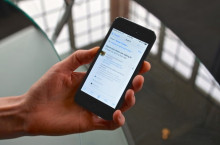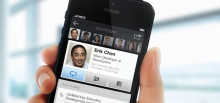LinkedIn will pay $1.25 million to settle suit over password breach
LinkedIn has agreed to pay $1.25 million to settle a class-action suit that alleged the company failed to protect the passwords and private information of its premium subscriber customers.
The case dates back to June 2012 when the company reported that Russian hackers stole more than six million passwords from the social networking site, about 5% of LinkedIn's user base. Shortly thereafter, a user launched a class-action lawsuit claiming LinkedIn violated its own user agreement and privacy policy.









































































